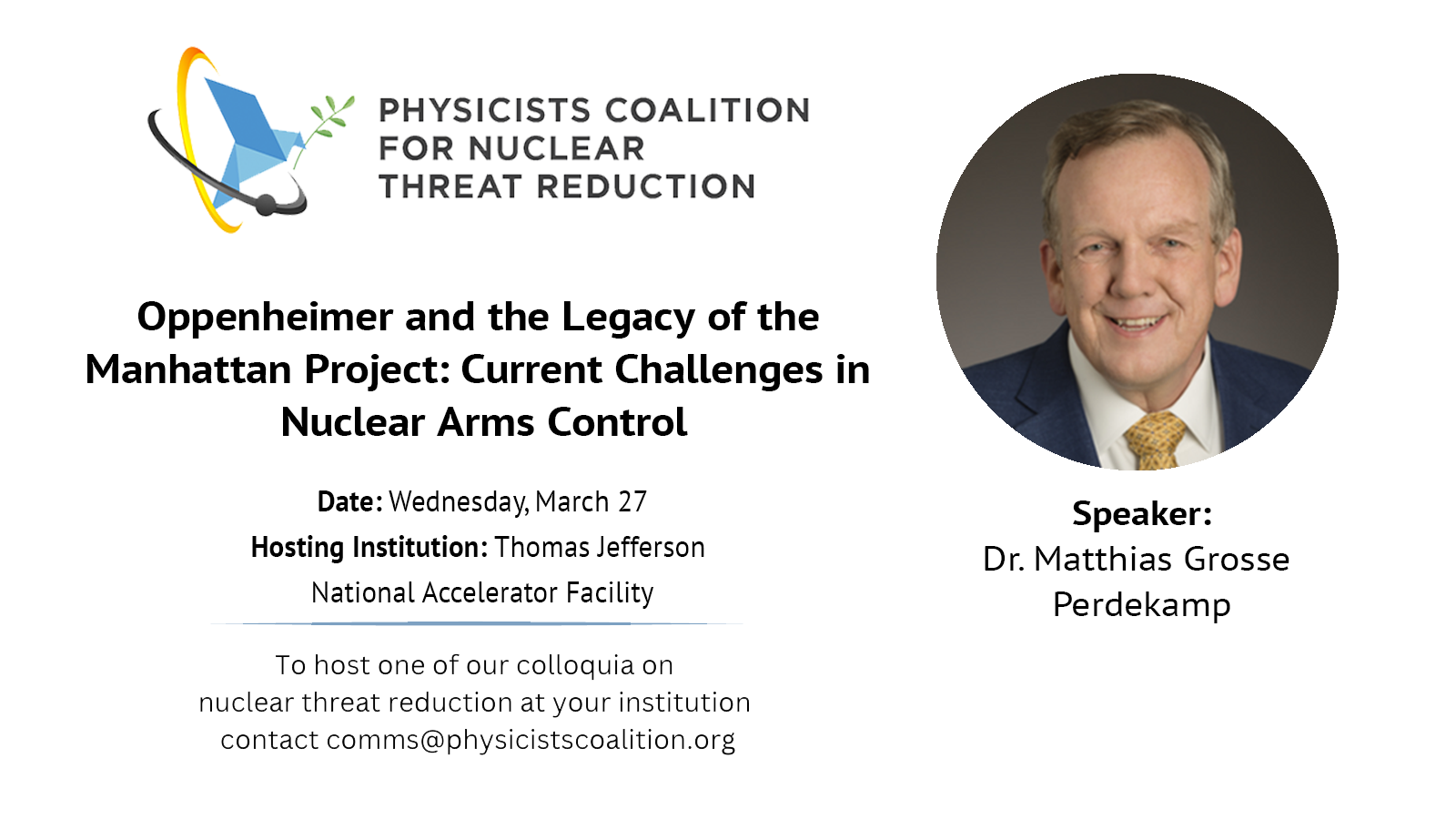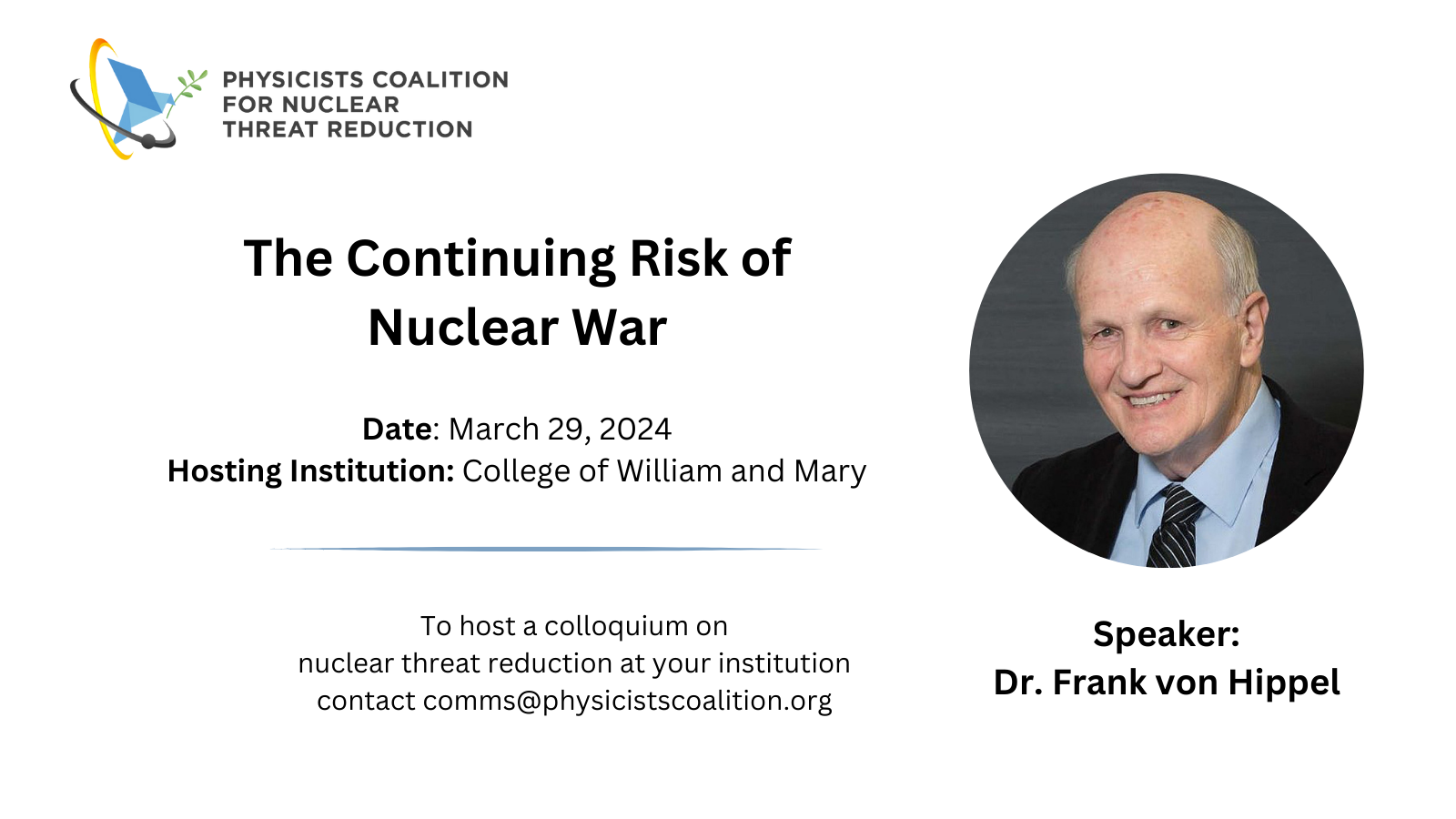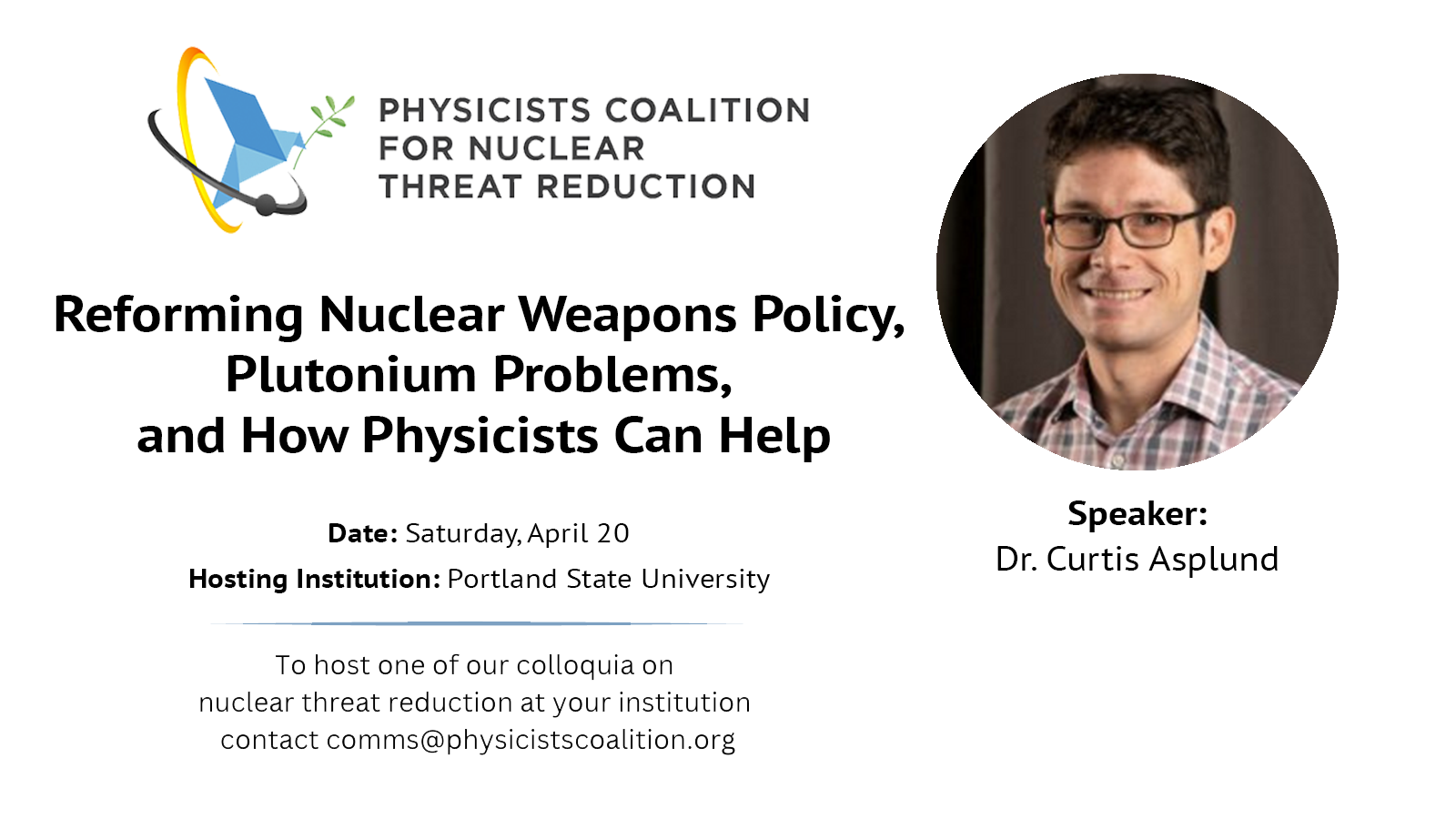
Thomas Jefferson National Accelerator Facility – Oppenheimer and the Legacy of the Manhattan Project: Current Challenges in Nuclear Arms Control
Abstract 80 years ago, Robert Oppenheimer led an industrial scale effort with more than 130,000 employees to create the nuclear fission weapons used to end World War II. With the United States and its allies facing totalitarian aggressors in the European and Pacific theaters, many elite scientists, engineers, and technicians supported the Manhattan Project through […]


